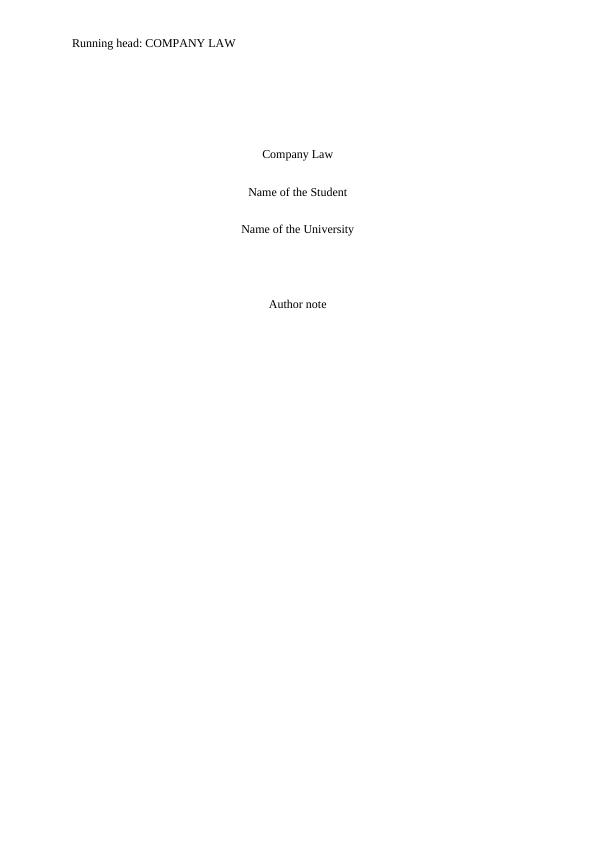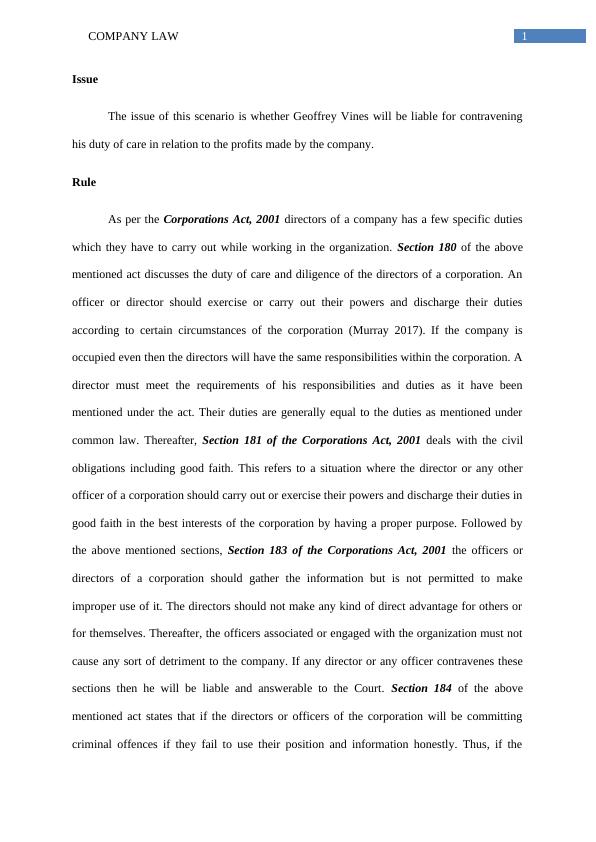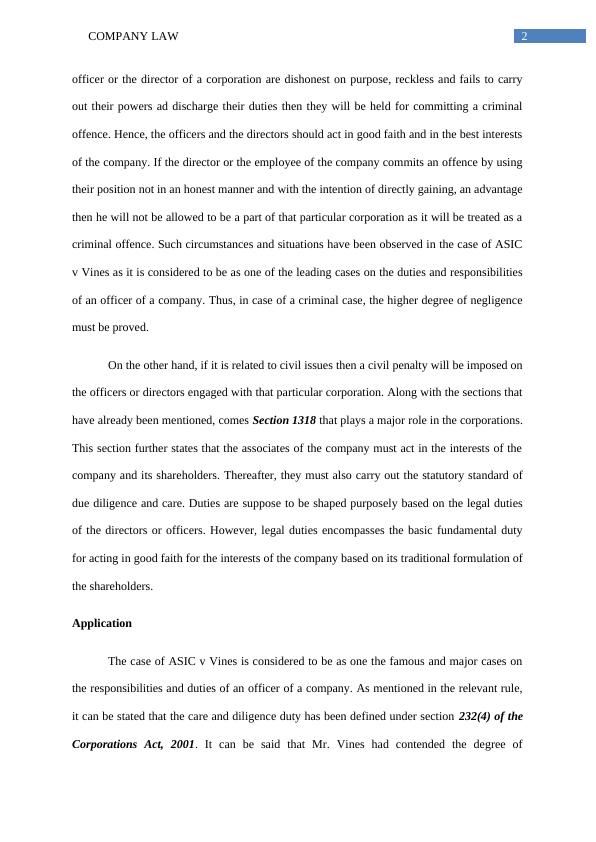Understanding the Duties and Responsibilities of Directors in Company Law
Form a group of 2 students, research and study a case, prepare a PowerPoint presentation and submit a written assessment of the case in the IRAC method.
6 Pages1743 Words293 Views
Added on 2023-06-10
About This Document
This article discusses the specific duties and responsibilities of directors in a corporation as per the Corporations Act, 2001. It explores the famous ASIC v Vines case and helps understand the degree of negligence required to prove a breach of statutory duty. The article concludes by stating that the liability on Mr. Vines was relieved.
Understanding the Duties and Responsibilities of Directors in Company Law
Form a group of 2 students, research and study a case, prepare a PowerPoint presentation and submit a written assessment of the case in the IRAC method.
Added on 2023-06-10
ShareRelated Documents
End of preview
Want to access all the pages? Upload your documents or become a member.
Business Law
|6
|1238
|361
Business Law
|6
|671
|311
The actions of Mary and the Heritage Pty Limited
|14
|3380
|434
ASIC or ASX defences against the directors of the company, Trump Developments Ltd
|5
|736
|252
Business and Corporation Law - Assignment
|8
|2421
|15
Legal Issues and Liabilities under the Corporations Act
|6
|1157
|206



